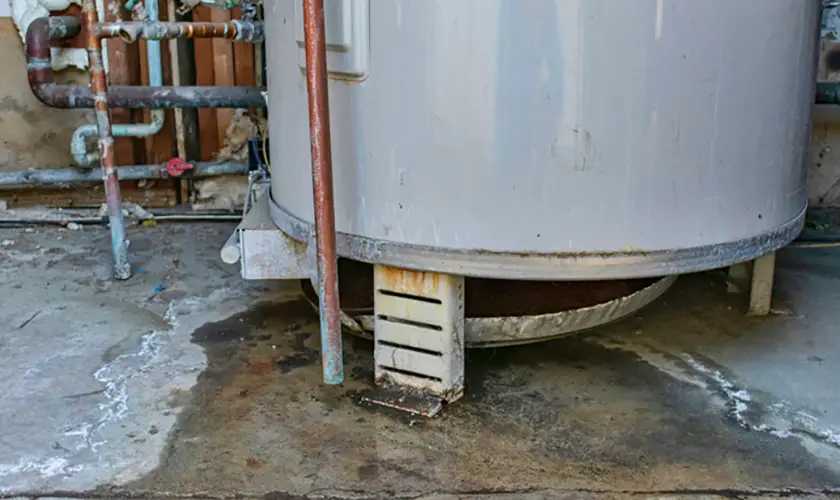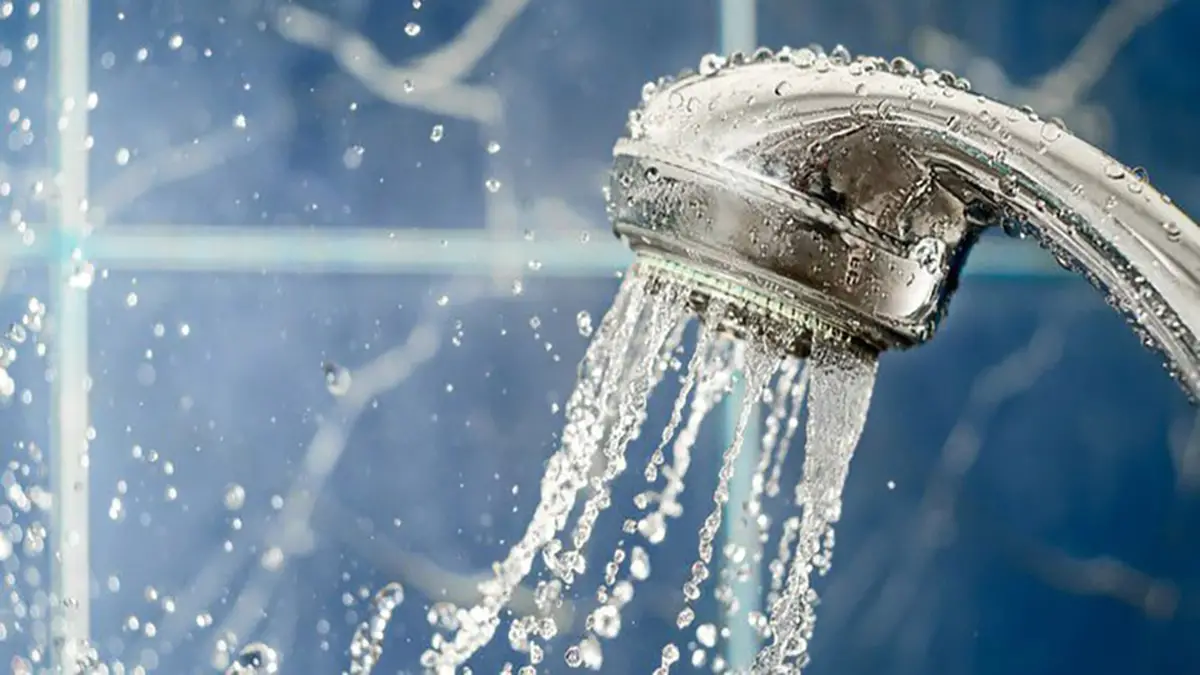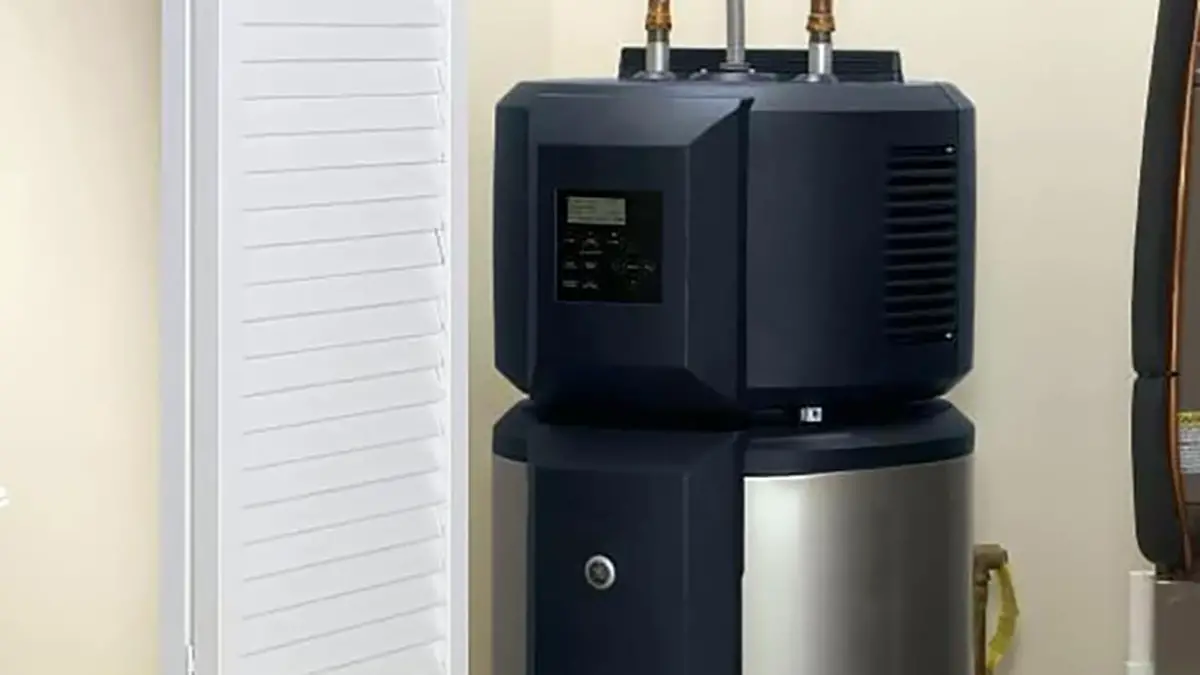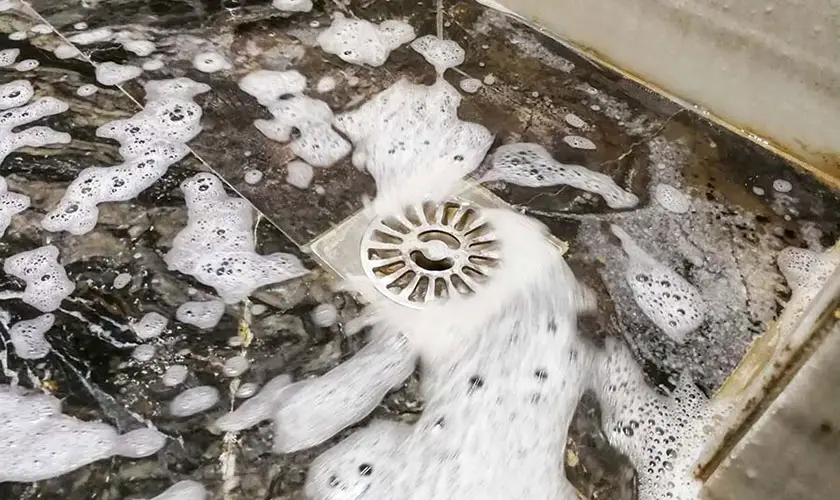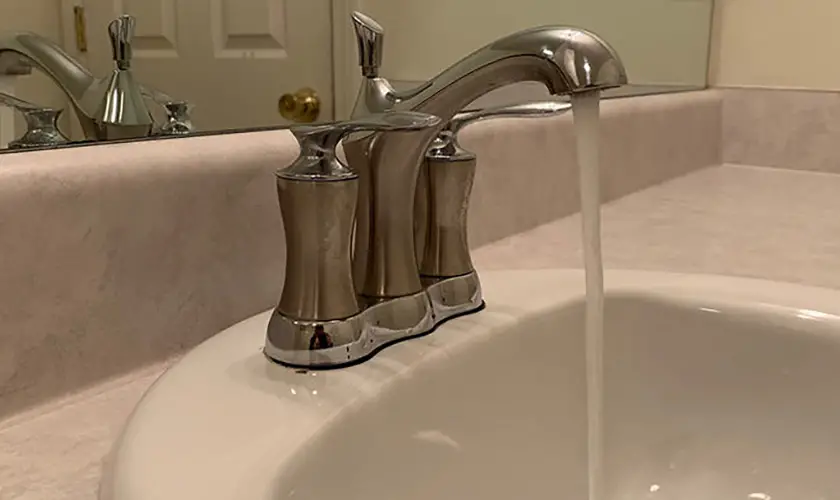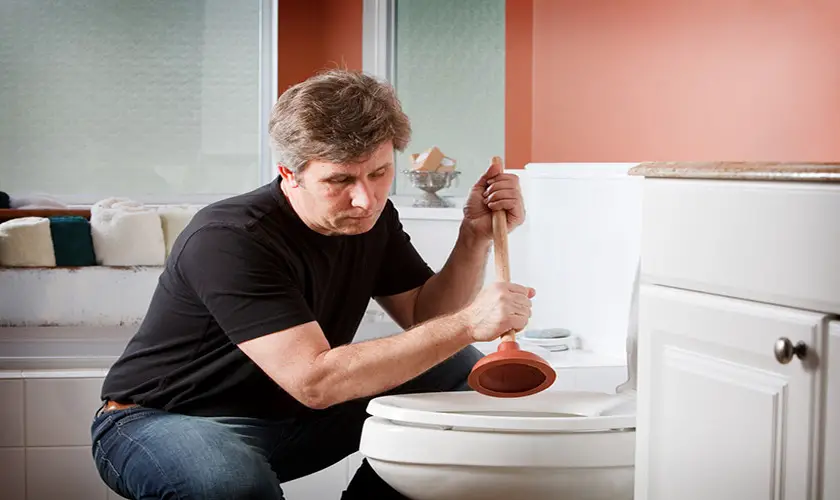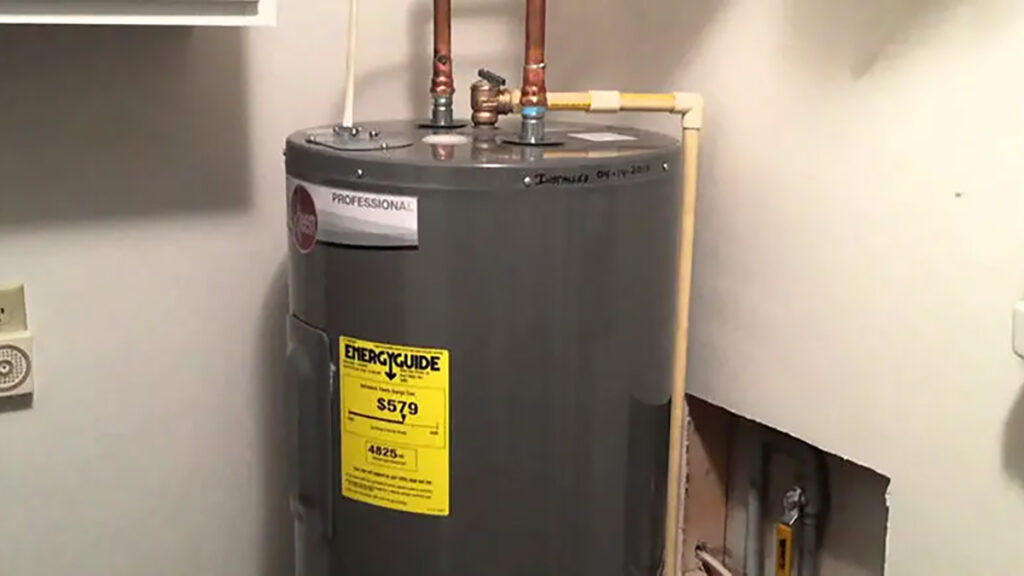
Whether you are buying a house or your water heater is not producing hot water, water heater replacement may be on the horizon. Often, homeowners are not prepared for water heater replacement. When a water heater quits, it can shock us and our wallet.
Part of preparing and budgeting for a water heater replacement is knowing how long a water heater will last.
An electric tank water heater lasts 10 to 15 years. A gas tank water heater lasts 8 to 12 years. With routine maintenance, tank water heaters can last 20 years or more. Tank water heater repairs cost $200 to $300, while replacement costs $1500 to $2000. Tankless water heaters can last 15 to 20 years. With more functional parts that can fail, tankless water heater repair costs about $575, and replacement costs $1500 to $3000.
A well-maintained gas or electric water heater can last 20 years or more. Water heater maintenance includes annual flushing maintenance and replacing the anode rod every 2-3 years to protect the inner tank lining.
In this article, we will focus on tank-style water heaters. You can get details on how long a tankless water heater lasts here. Many factors go into determining how long a water heater will last. The number one factor in extending the life of a water heater is proper maintenance. Even inexpensive water heaters can outlast more expensive models if properly maintained.
However, if the water heater is not maintained well, you can expect the lifespan to be shorter, and you could risk sudden failure or damage to your house.
Most inexpensive water heaters come with a 6-year manufacturer warranty. However, some better-quality models can have manufacturer warranties of 10 to 12 years. In contrast, a few high-end models offer lifetime warranties on the water heater.
Water heaters with fiberglass tanks tend to last considerably longer than those with steel tanks. Regardless of type, it is essential to remember that all tanks eventually fail, no matter how well they’re maintained.
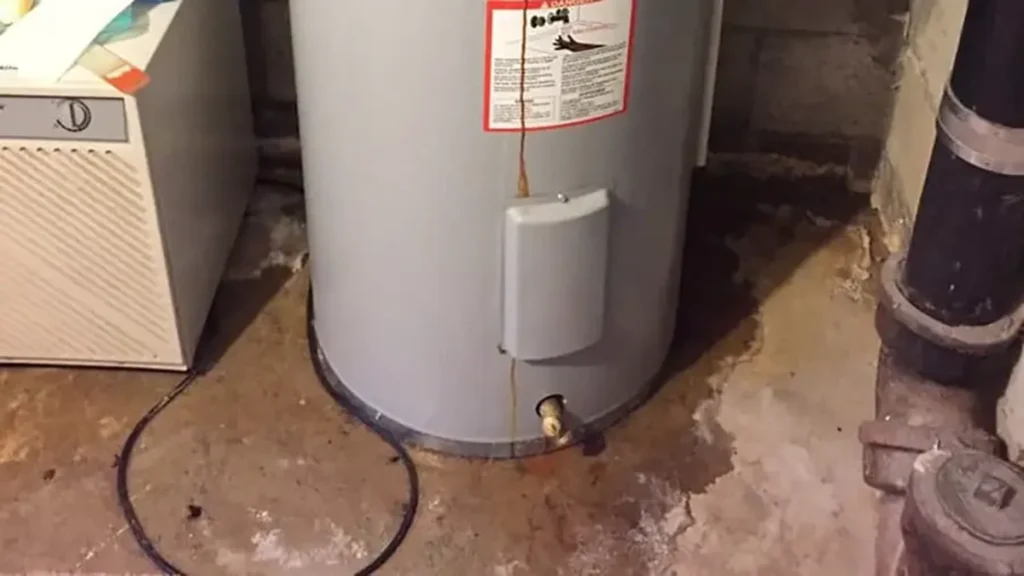
Cost to Repair a Tank Water Heater
Most water heater repairs are inexpensive and easy to do if caught in time. However, this may not always be the best option. Here are some things that you should consider:
You should consider the repair cost and whether you can do that repair yourself or if you need to hire a licensed plumber. A plumber will cost about $50 to $150 per hour and often carries a minimum trip charge. If the water heater is experiencing higher maintenance, a replacement water heater will be your best option.
There’s no point in throwing good money after bad. If your repair cost will be 50% of the cost of a new water heater and will only provide a small amount of remaining life expectancy, then replacement would be your best option.
| Water Heater Repair | Part Cost | Repair with Labor |
|---|---|---|
| Thermocouple | $20 | $70 to $170 (1 hour) |
| Gas Control Thermostat | $80 | $130 to $210 (1 hour) |
| Heating Elements | $40 | $210 to $360 (2 hours) |
| Electric Thermostat | $20 | Included in Heating Element Replacement |
| Leaking | Varies | Up to $1000 |
Cost to Replace a Tank Water Heater
Now that you’ve determined it’s time to replace your water heater, there are some things you need to consider:
- Will you be replacing the water heater with a similarly sized unit? When you decide to replace your water heater, it may be an excellent time to upgrade or switch to a tankless system. If a leak damages your house or you need to move the water heater, replacement is recommended.
- Do you need a larger tank to meet your family’s needs? If your family has grown since you installed the water heater last time, a larger one may be desired. However, there are limitations to size when choosing tank water heaters, depending on where you live.
- Will you install the water heater yourself or hire a licensed plumber? You should always hire a licensed plumber to install a new water heater. Licensed plumbers in your area will know local building codes you may not know. However, depending on your skill level, you can install a new water heater yourself.
New Water Heater Tank and Installation Costs
HomeDepot.com says the average installation cost of a new water heater is approximately $1,308. Nationwide costs typically range from $952 to $2,098. This replacement estimate includes the following components:
- Traditional tank water heater – typical water heater size is 40 or 50 gallons.
- Permits to install new water (some locations do not require this).
- Installation materials such as fittings, shut-off valves, piping, etc.
- Installation labor by a local, licensed, and insured plumber.
- Removal of the old unit following local laws.
If you choose to purchase and install a water heater yourself, you can expect to pay between $350 and $2000 depending on the size and type of water heater you decide to purchase.
| Water Heater Type/Size | Average Cost | Installed |
|---|---|---|
| Electric, 40 Gallon | $400 – $450 | $600 – $1050 |
| Electric, 50 Gallon | $450 – $1000 | $650 – $1600 |
| Electric Hybrid, 50 Gallon | $1000 – $1500 | $1200 – $2100 |
| Electric Hybrid, 80 Gallon | $1500 – $2250 | $1700 – $2850 |
| Gas, 40 Gallon | $460 – $550 | $660 – $1150 |
| Gas, 50 Gallon | $560 – $1200 | $760 – $1800 |
| Gas, 75+ Gallon | $1400 – $1900 | $1600 – $2500 |
Be Aware of Hidden Installation Costs
We touched on building codes and number three in the previous section. When you replace a water heater, you must meet all current building codes.
There may be costs greater than just the water heater itself. Some of the hidden costs you may see when installing a new water heater include:
- Expansion tanks are used to help control pressure inside and water heater.
- Seismic strapping depends on where you live. You may need seismic strapping if you live in an area prone to earthquakes.
- Drain pans are placed under the water heater to catch leaks and discharge water to the exterior to protect the structure of your home.
- Plumbing pipe upgrades depending on the type of plumbing supply pipes you have in your house, you may need upgrades. For example, if your home has polybutylene piping, you will likely need to replace all accessible piping during installation.
Why Hot Water Heaters Fail
A water heater may seem to fail out of nowhere, but that’s not the case. Water heaters fail over time. It is recommended you drain and flush your water heater annually. It would be best to replace the anode rod every 2-3 years. This sacrificial rod protects the interior tank lining.
You can often predict water heater failure if you know the signs. There are two main reasons why tank water heaters fail:
Too much pressure inside the tank
As the water heats up, it expands, creating pressure inside the tank. If the water inside the tank heats to the point that it exceeds the tank’s pressure specification, it could explode. One of the ways to avoid this is to keep your hot water temperature setting under 140°F.
Modern water heaters have a temperature and pressure relief valve (T&P valve). The temperature and pressure relief valve opens when the pressure inside the tank reaches the tank’s temperature threshold. This valve expels hot water through a discharge pipe to relieve the pressure inside the tank.
Another safety feature that you can add is an expansion tank. Expansion tanks help control pressure inside the water heater tank by allowing hot water to expand. In a 50-gallon tank, hot water expands to 52 gallons. A 2-gallon expansion tank can store the expanded water.
One of the problems with old water heaters is that they lack a T&P valve and an expansion tank to help control the water heater’s pressure. With nowhere to expand, the pressure inside the tank can cause the water heater to explode, turning many old water heaters into a ticking time bomb.
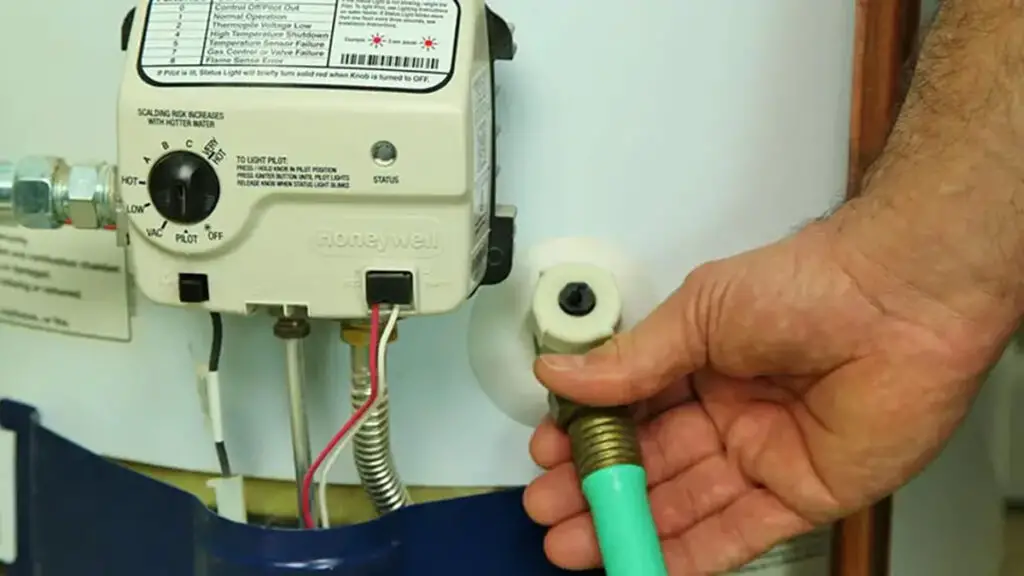
Flush Sediment Buildup Inside the Water Heater
The second leading cause of water heater failure is sediment buildup inside the tank. Chemicals and contaminants found in the water supply cause corrosion inside the tank, eventually rusting it and causing it to leak.
Explosions occur when a flaw develops inside the tank. The tank’s pressure builds, and forces water through these weak areas.
As part of your annual maintenance on your water heater, you should drain and flush out any sediment inside the tank. Tank water heaters have a drain valve at the tank’s base to do this. Here’s a quick rundown of how to drain and flush your water heater.
- Turn off the water supply before working on the water heater.
- Turn off power or gas to the water heater before starting work.
- Attach the hose to the drain valve and run it to the exterior to drain freely and safely. Remember the water will be hot.
- Open the hot water tap at a nearby sink.
- Open the drain valve on the water heater to begin draining.
- Once the water heater has drained, turn the water supply back on the flush the tank.
- Close the drain valve once the water heater has been flushed and the water from the hose is clear.
- Allow the water heater tank to refill.
- Turn the power or gas back on to the water heater. If you have a gas water heater, you’ll likely need to light the pilot.
Related Reading: Tankless Water Heater Maintenance: How To Guide & Tips.
Replace Your Anode Rod
Water heaters with glass liners are equipped with an anode rod that attracts contaminants in water. Over time the contaminants will eat away at the anode rod protecting the tank’s liner. Once the anode rod has deteriorated, contaminants attack the liner, weakening the water heater. You can expect anode rods to last 3-5 years, depending on the water quality and the type of anode rod installed.
Anode rods are made from magnesium, aluminum, or aluminum/zinc alloy. Replacement anode rods can be purchased at local home improvement stores and are relatively easy to install.
It would help to replace your anode rod every 3 to 5 years. You can do this during your annual flushing maintenance of the water heater. You may want to replace a low-quality anode rod with a better-quality one that will last longer.
Related Reading: Water Heater Anode Rods: What it is & How to Replace it
Signs You Need to Replace Your Water Heater
Age of the Water Heater
Age is a significant factor in your water heater’s performance. If your water heater is over ten years old, you should expect to have higher maintenance costs or to replace it in the near future.
If you’ve properly maintained your water heater, you may get up to 12 to 15 years of life from a gas water heater and 10 to 15 years from electric water heaters. Beyond that, replacement is recommended mainly due to tank conditions, rapid safety advances, and energy efficiency improvements.
Energy efficiency is crucial when it comes to gas water heaters. Energy consumption is higher in older water heaters versus newer models, which will pay for itself over time.
Rusty Water From Water Heater
If you see rusty or reddish-brown water from your water heater, that indicates that rust is mixing with water inside your tank. It’s a clear indication that your water heater needs replacement.
If the water heater is not leaking, you may be able to buy some time by performing a drain and flush maintenance on the water heater to remove loose sediment and change your anode rod. However, depending on the condition of the tank’s interior, this service may not be sufficient.
Ultimately, if the tank is damaged or starting to leak, there is no option but replacement.
Gurgling Sounds Inside Your Water Heater
As your water heater ages, sediment builds up at the tank’s bottom. When the sediment is heated and reheated over time, it hardens.
Banging, crackling, or gurgling sounds inside your water heater indicate a sediment buildup inside the tank. It is recommended that you try to flush and drain your water heater.
Depending on the amount of sediment build-up inside the water heater, the drain valve may be clogged or blocked, preventing it from draining water properly. One option would be to try replacing the drain valve to clear sediment from the water heater.
If all attempts to drain and remove the sediment fail, then replacement is the best option. In this case, the water heater’s replacement is recommended before a catastrophic leak occurs, which could cause thousands of dollars of damage to your house.
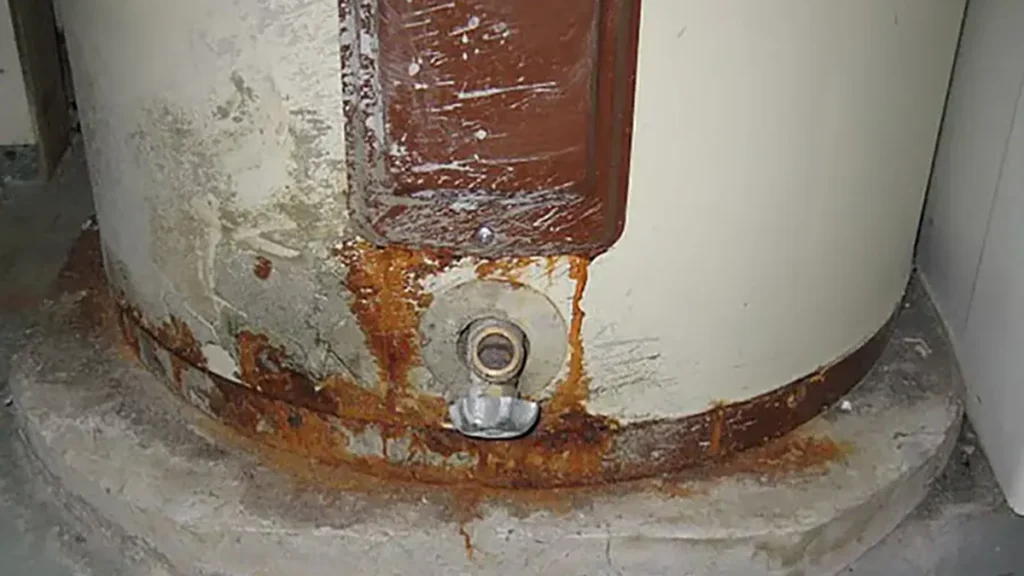
Leaking from the Bottom of a Water Heater Tank
If your water heater is leaking, that is a good indication of something wrong. See our How to Repair a Leaking Water Heater for steps to repair a leaking water heater.
You need to contact a licensed plumber to have them examine your water heater for repair or replacement.
Some leaks can be repaired, while others can’t. Leaks from the top of the water heater, such as the supply pipe fittings or the T&P valve, are likely repairable. However, this is not always the case and is still an indication that something is going wrong internally that needs to be addressed.
If you’ve noticed water on the floor around your water heater, you could have a severe problem. You can’t repair internal leaks in tanks. If water is leaking from the bottom of your tank, you should plan on an immediate replacement and call a licensed plumber.
The Water Heater Stops Producing Hot Water
Hot water is a daily luxury we’ve all become accustomed to. No hot water can be an inconvenience. If the electric water heater has no hot water, many things could be the cause. One is there is likely a bad heating element or a bad electric thermostat.
Another possibility is a broken drip tube. The drip tube is a plastic pipe that runs from the cold water inlet to the tank’s bottom. If this pipe is broken, cold water and hot water mix resulting in lukewarm water from the tank.
These items commonly fail over time and can be repaired by a licensed plumber. These items are relatively easy to replace for the handy do-it-yourself person.


